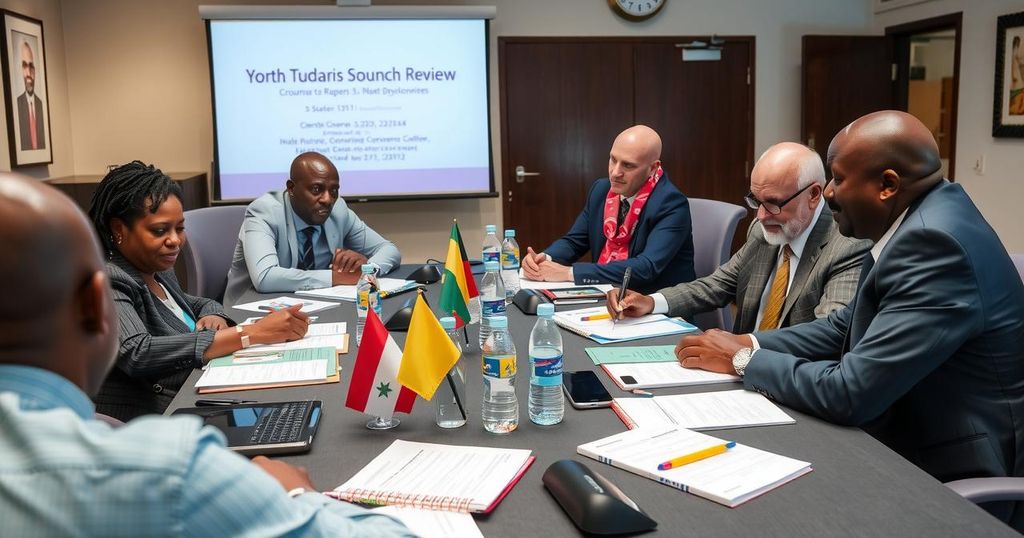South Sudan’s Economic Challenges Amid Regional Conflict and Humanitarian Crisis
South Sudan faces escalating macroeconomic instability due to war spillovers from Sudan, notably through the disruption of its key oil pipeline. This has led to reduced growth, increased inflation, and heightened food insecurity affecting the population. Additionally, the national unity government’s decision to postpone the elections signifies ongoing political and economic challenges amid the humanitarian crisis.
The Republic of South Sudan is currently facing significant macroeconomic challenges exacerbated by spillovers from the Sudanese conflict. Since February 2024, the primary pipeline, which carries 70% of the nation’s oil production through Sudan, has been inoperable. This disruption has resulted in a steep decline in economic growth, exports, fiscal revenues, and foreign exchange inflows. Inflation has surged, and the currency has depreciated rapidly in the parallel market. To mitigate these shocks, the government has accrued salary arrears and resorted to monetary financing amidst limited alternatives, deferring necessary exchange rate adjustments. The humanitarian situation remains dire, with nearly two-thirds of the population experiencing acute food insecurity worsened by flooding and an influx of refugees. Additionally, the national unity government, established per the peace agreement, has postponed the elections initially set for December 22, 2024, by two years.
The economic stability of South Sudan has been severely impacted by ongoing conflicts in the region, particularly the war in Sudan. A crucial pipeline sustaining the nation’s oil exports has faced operational challenges, leading to a significant downturn in the economy. These developments have not only affected fiscal revenue and economic growth but have also deepened the humanitarian crisis with rising food insecurity. The government has struggled with limited financing options, prompting delays in budget adjustments and management. The context of the longstanding national unity government and peace treaty frameworks continues to shape the political landscape as electoral deadlines are revised in light of current challenges.
In conclusion, South Sudan is grappling with multifaceted challenges fueled by external conflicts and internal economic policies. The inoperable oil pipeline and high inflation have escalated the humanitarian crisis, affecting millions. The government’s choice to delay electoral processes underscores the precarious balance of maintaining unity and addressing pressing economic concerns amidst a backdrop of instability. Continued monitoring and international support are crucial as South Sudan navigates this complex landscape.
Original Source: www.imf.org




Post Comment